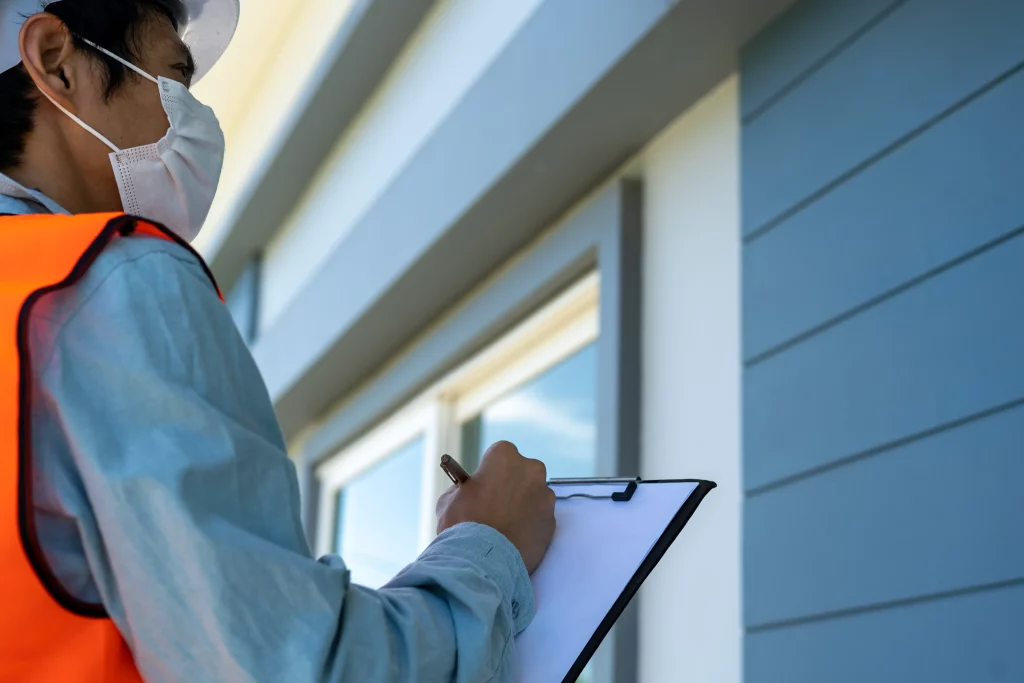
Ever found yourself wondering what a commercial property is actually worth? Whatever brings you here, you have likely heard the term commercial building appraisal. It sounds formal and maybe a little intimidating, right? Let us break it down together, so you can feel confident about the entire process.
We are going to walk through this step-by-step, from the big picture right down to the details that make all the difference.
So, What Exactly Are We Talking About Here?
Let us get straight to the point. A commercial building appraisal is basically a professional opinion on the value of a property, but it is so much more than just a number on a page. Imagine it as a deep dive, a full health check-up conducted by a certified expert.
This appraiser does not just drive by and take a quick look. They meticulously inspect everything, from the foundation to the roof, and then they hit the books, analyzing tons of market data. The goal is to answer one crucial question: what would this property most likely sell for in today’s market?
This is not something you can figure out with a Zillow search. We are talking about a formal report that banks, lawyers, and investors all trust to make big decisions.
Why Would You Even Need One?
Good question. People usually do not just order one for fun. There are some very solid reasons to get a commercial building appraisal.
Securing a loan is the big one. If you are walking into a bank to get a mortgage for a new building, the lender will absolutely require it. They need to know the property is solid collateral for the money they are lending you. Maybe you are looking to sell. Having an appraisal done beforehand helps you set a realistic, defensible asking price. On the flip side, if you are buying, it can help you decide if the seller’s price is fair.
Other common reasons include sorting out a business partnership, dealing with an estate, or even fighting your property tax bill if you think it is too high. Sometimes, you even need one for insurance, to make sure you are covered for the full cost of rebuilding if something terrible happens.
How Do They Actually Figure Out the Number?
This is where it gets interesting. Appraisers are not magicians. They follow proven methods to land on that final value. Think of it like a detective using three different techniques to solve a case.
First up is the Sales Comparison Approach. This is the one most of us are familiar with.
Then we have the Income Approach. This is huge for properties that generate rent, like an apartment complex or a strip mall. The value here is all about the money it makes.
The third method is the Cost Approach. This one asks a simple question: what would it cost to replace this entire building from scratch?
The appraiser estimates the current cost of construction, adds in the value of the land itself, and then subtracts value for anything that has worn out or become outdated. ult
What Can Make Your Property’s Value Go Up or Down?
You have probably already guessed that location is everything. A building in a thriving, accessible area is just worth more than one in a declining neighborhood. Then there is the physical condition. A well-maintained, modern building with updated systems will appraise higher than one that is falling apart and needs a new roof and HVAC system.
For rental properties, the tenants are everything. A building full of reliable, national credit tenants with long-term leases is a goldmine. It tells the appraiser the income is stable and predictable. On the other hand, a high vacancy rate or tenants who are constantly late on rent will drag the value down.
And we cannot forget the overall market. Is it a boom time? Are interest rates low, making it easier for investors to borrow money? These big economic conditions play a huge role in your final number.

Getting Ready for the Big Day
If you know an appraiser is coming, a little preparation can go a long way. Do not panic. Just get your paperwork in order. Gather your financial statements, copies of all leases, property surveys, floor plans, and a list of any major improvements you have made. This information is pure gold for the appraiser.
Then, take a walk around the property. Look at it with a critical eye. Does the landscaping look tidy? Are all the lights working? Is that minor repair you have been putting off suddenly looking a bit more major? Making a good impression matters.
Conclusion:
Ultimately, this process is your key to making smart, informed decisions. It is about getting the right number. The truth. And with that knowledge, you can negotiate with confidence, secure your financing, and plan for your future. The goal is to present your property in its best possible light, because a commercial building appraisal is all about the facts
Frequently Asked Questions
What is the main difference between commercial and residential appraisals?
Commercial ones are far more complex, while residential appraisals rely almost entirely on comparing similar home sales.
How long does the whole appraisal process usually take?
It really depends on the property, but you should generally expect it to take anywhere from a few weeks to a couple of months from start to finish.
What is this going to cost me?
Commercial fees can range from a few thousand dollars to well over ten thousand, depending on the size and complexity of the property.
Who actually chooses the appraiser?
Even though the property owner typically pays the fee, the lender is almost always the one who hires the appraiser directly.
What if I get the report back and I totally disagree with the value?
The best way is to provide the appraiser with new, solid data they might have missed, like recent sales of comparable properties that better support your value opinion.
What should I look for when hiring an appraiser?
Look for professional designations like the MAI from the Appraisal Institute. These show the appraiser has committed to advanced education and ethical standards.
Is there a specific license for commercial appraisers?
Yes, in the United States, appraisers must be state-licensed or certified, and commercial appraisals require a higher-level certification than residential ones.
How often should I get my property appraised?
For most owners, every three to five years is a good rule of thumb, but you should definitely get one before any major financial decision like a sale or a refinance.
Does the appraised value set the final sale price?
Not at all. The appraisal is an expert opinion. The final sale price is whatever a buyer and a seller agree upon in a negotiation.
What does “highest and best use” mean in an appraisal?
It means the appraiser figures out the most profitable, whether it is with the current building or something entirely new.

